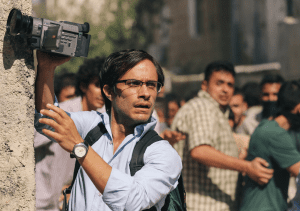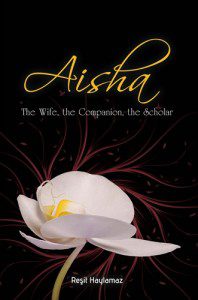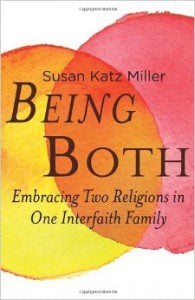 |
|
Musically speaking
|
In the mystic garden where romance emanates in every bloom, even Beauty is difficult to see when the Beloved is separated from the Lover. The clouded skies and rainstorms loom over the night, but the Lover still plays his song for the wounded flowers and silent spring-fountains. Left alone in an estranged land, he continues to sing, sending his longing out to the world so that his sorrow may echo into eternity. Maybe someday, the painful state of his exile will bring back the Light that once shined upon his rose garden. But in his relentless tears and heartbreak, little does he know that the Presence of Beauty is Eternal, and that Angels listen to his yearnings with compassion. One yearning he has, and that is reunion, if he were to yearn at all. One desire he has, and that is reunion, if he were to desire at all.
This kind of vivid imagery comes to mind when one is entranced by the incredibly captivating music of Niyaz. Self-described as “folk music for the 21st century,” Niyaz is an exciting fusion of traditional Middle-Eastern, South Asian, and contemporary Western musical styles that redefines the world music platform and sets a new standard for global trance. Led by the hauntingly beautiful vocals of Iranian-born songstress, Azam Ali, and accompanied by multi-instrumentalist Loga Ramin Torkian and synthesizer programmer Carmon Rizzo, Niyaz not only blends East and West, but also bridges the ancient and the modern with profound mystical poetry from the Islamic world.
Their new album, Nine Heavens, marks their second release and continues to explore the heart of Islamic mysticism, or Sufism, as well as the much-needed bond between the East and the West. The album opens with a fun track titled Beni Beni, where Ali sings in Turkish. It is a traditional Sufi song about humankind longing to be united with God through Love – a prevalent theme in Sufi literature and teachings. The song is very festive with wonderfully complex instrumentation and joyous vocals which makes it the perfect introduction for the album.
The pulsating and bass-thumping tabla on the second track, Tamana, makes it the most cinematic track on the album, and although the Urdu lyrics sing of sorrow and lament, it is also hopeful and healing. Feraghi is an impassioned Farsi song about exile and it features traditional Persian melodies merged with synthesized brilliance by Rizzo. It is a song of separation, of abandonment, of being left alone without any compassion, and desperately longing for return. Ali’s performances, whether in Turkish, Urdu, or Farsi, are elegantly unique, and much of that may be due to her exposure to diverse surroundings – she was born in Iran, but raised in India and the United States. In other words, her singing style is not distinctly Persian, Indian, or Western, but rather an exceptional creation of her own.
The violins on Allah Mazare are gorgeous and resonate with orchestral flair, while the ecstatic pace of Molk-e-Divan blasts with beautiful percussions and brilliant guitar and saz performances by Torkian. The Farsi lyrics on Molk-e-Divan and Sadrang were written in the 13th century by Amir Khusrau of the Indian Subcontinent, who is often credited as the “father of Qawwali music” – traditional Sufi music found predominately in South Asia. Ishq and Iman are beautiful Urdu tracks; the former was written in the 18th century by Khawaja Mir Dard and sings about God’s endless Love: “Tere Ishq main humne kya kya nahi dekha?” That roughly translates as “What have I not seen in Your Love?” Iman is the slowest and most ambient track on the album, and Urdu lyrics translate as: “Do not despair, for God is always there.”
With so many stereotypes and misconceptions about Islam, Middle-Easterners, and South Asians, Niyaz is more than a breath of fresh air. It serves as dialogue and it reveals a side of Islam that we don’t often see in the mainstream media. For too often, the achievements and contributions of Islamic civilization has been ignored and neglected in American high schools; hardly anything is learned about the profound poetic works of Jalaluddin Rumi or Rabia Al-Adawiyyah, the mathematical breakthroughs of Mohammad Al-Khwarizmi, the inspired leadership of Salah Al-Din, or even the medical discoveries of Abdallah ibn Sina. Instead, only European history is taught, along with Greek philosophies and European innovations, while Islamic history is either not discussed or vilified. Niyaz fills in many of those forgotten areas and introduces us to the extraordinary realm of Islamic poetry, music, and culture, a refreshing contrast to what we see on the daily news.
Throughout the album, the music stimulates the listener with feelings of joy, sorrow, and yearning, and it transports them into an unseen realm – a place deep within our hearts and souls. With the sound of 13th-18th century Sufi poetry fused with magnificent vocals that carry us beyond, classical instruments of the Islamic world, and modern synthesizer ingenuity, Niyaz opens so many doorways in the human imagination and liberate listeners to travel wherever their hearts desire.
Nine Heavens is not just a celebration of Islam’s mystical culture and diversity; it is also a bridge between the old world and the new. It is a union of the ancient and the modern, the East and the West, and it is one great song of the human soul – its longings, its joys, its pains, and its calling to the Divine. As we listen to Nine Heavens, we learn that in every drum beat, in every string that is plucked, and in every word that is sung, the name of Love is enamored, wholly and purely.
Jehanzeb Dar is a Pakistani Muslim-American, a student, writer, and filmmaker who dwells on issues of Faith, Love, and Spirit. He currently blogs at Islam on My Side.











